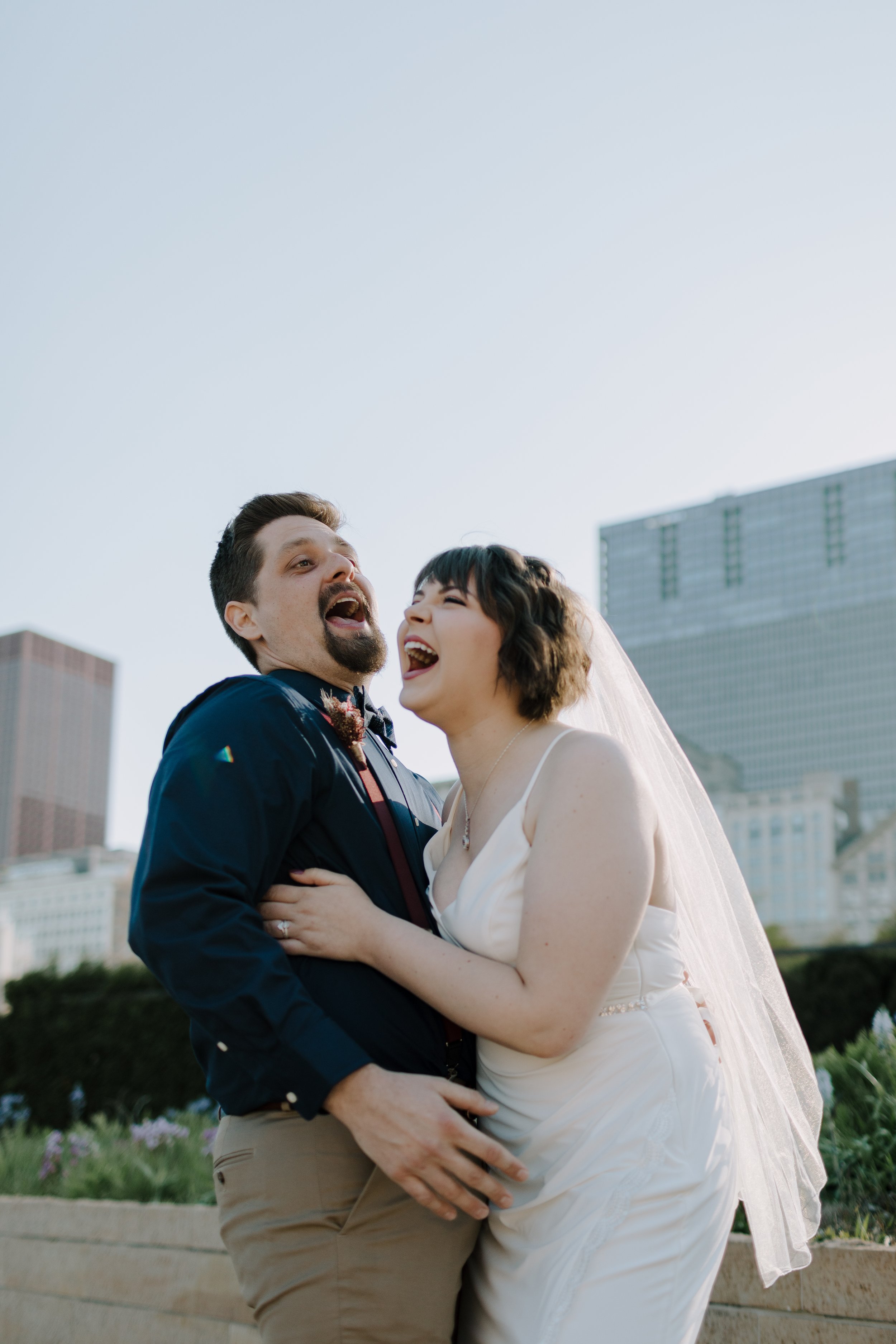5 Things To Expect From Your Wedding Officiant
Most people don’t dream about who is going to officiate them on their wedding day. The love, gown, the friends, the party, those are what most people gravitate towards when they dream about their wedding day.
Wait… WHAT? The who might not matter, unless you have the perfect loved one to do the honors. But there’s a lot that goes into being a great wedding officiant and it takes some education to figure out what your best fit looks like. I recommend being intentional and transparent about your questions and expectations for your wedding officiant.
The following is my philosophy as a wedding officiant who has married hundreds of couples and consulted for many non-professional friend/family officiants.
Cailiynn Wolfgang Photography
To Be Heard
Your officiant should be open to receiving you as you are and listen to your love story. Bring your questions, ideas, hopes and fears so your officiant can help you navigate the wedding ceremony process and where available, premarital counseling to help support your relationship, too.
If it isn’t obvious at first glance or conversation that an officiant is going to hear you and support you, they might not be your best fit. Ask your questions and trust your gut (or planner).
Professionalism
Your officiant should have some kind of process in place. It doesn’t have to be a super polished software system or over the top services but it should meet your expectations.
If an officiant isn’t willing to answer your questions, share experience or speak to your concerns (i.e. Do you write a script or just wing it?) or if you’re considering a friend or family member that isn’t confident, it might be worth getting a second opinion or training for them.
Kristy Ramsey Photography / Content Maven Media
Resources
Your officiant should have a repertoire of resources that might help you during your ceremony planning process. Ask about ceremony logistics, recommendations on processional order, and ways to make Grandma happy while not making your ceremony overtly religious if that’s not your style.
If an officiant can’t provide tips on writing your vows, or examples of unity acts and readings, you might want to consider another option.
Calm Anchoring Force
Your officiant should be the calm anchor at the top of your aisle, receiving the processional. You can look to your officiant to reassure you when your nerves may be in a knot and to guide you and your loved ones through the ceremony with loving kindness and confidence.
If an officiant isn’t planning to show up early to ensure they’re available and prepared for your ceremony, it can add unnecessary stress to your plate.
Dearest Photo
Ordained & Aware
Your officiant should be legally or religiously ordained so they can perform your legal ceremony (specific to the US). You have the right to request proof of credentials and for a clear explanation of how they handle the legal requirements of solemnizing your marriage.
If an officiant can’t answer your questions about basic marriage law in your area (or at least express a willingness to research it for due diligence) or recuses themselves of handling your marriage license after the ceremony, keep looking.
If you or someone you know is looking for a wedding officiant, check out our offerings here.



